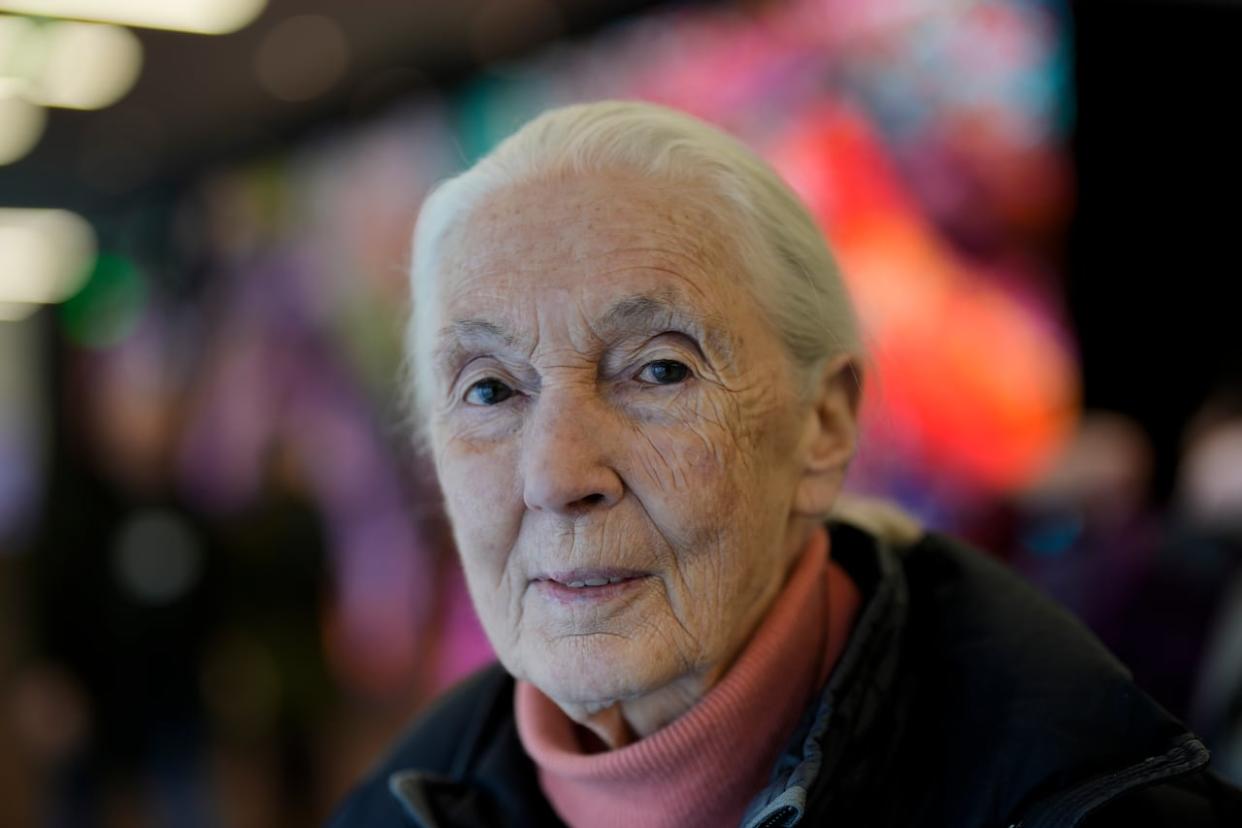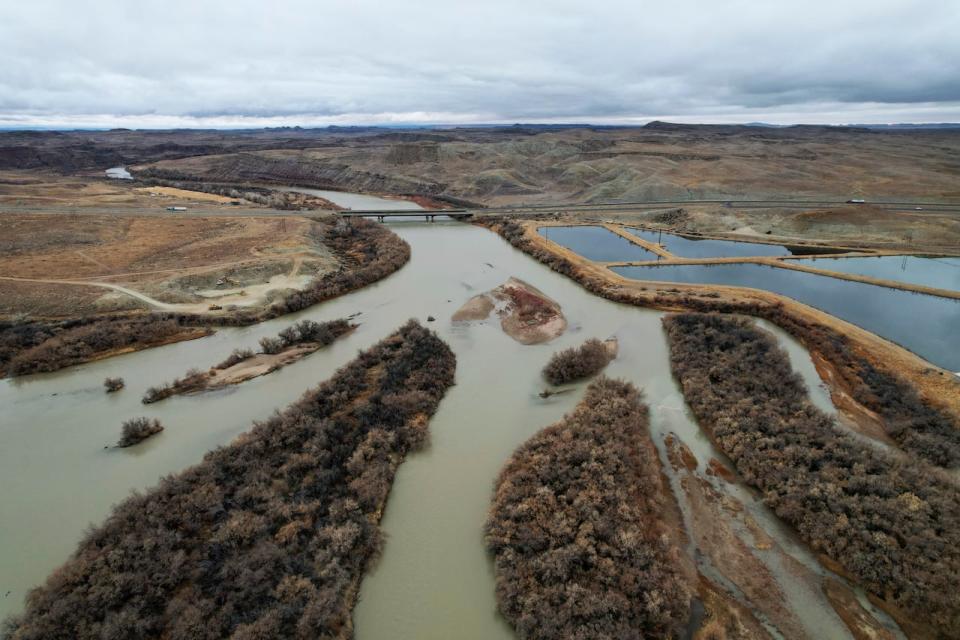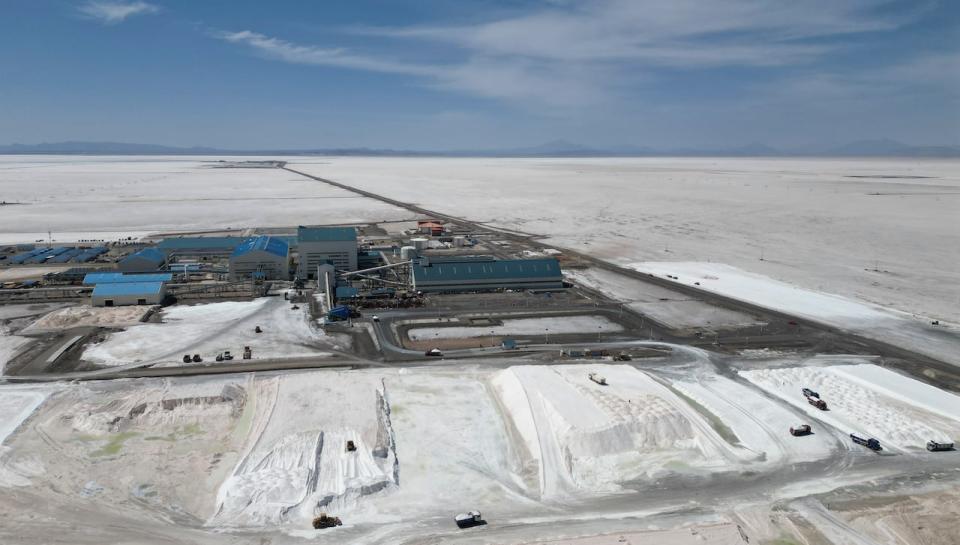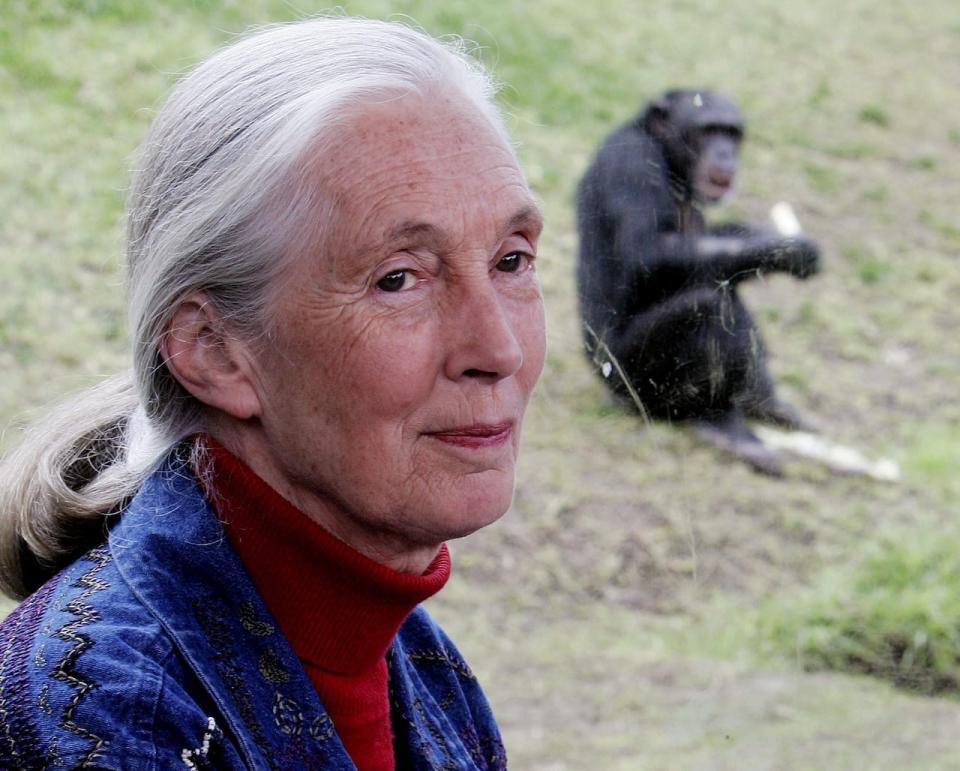Climate warrior Jane Goodall isn't sold on carbon taxes and electric vehicles

World-renowned primatologist and climate activist Jane Goodall says carbon pricing schemes like the one Canada has deployed aren't a silver bullet to solve the pressing threat of climate change.
Speaking to CBC News during the Ottawa stop of her cross-country tour of Canada this week, Goodall said the jury's out on whether levying a consumer price on emissions will meaningfully improve the climate picture over the long term.
Goodall, who just turned 90, said a carbon tax can seem punitive to consumers — making a measure to fight climate change seem like a costly chore.
She said she also worries that the fight against climate change has been "politicized ... causing people just not to listen" — and that's a problem because the urgency of the crisis demands an all-hands-on-deck response.
Industrial carbon taxes also rarely impose a huge financial burden on major energy companies, which can pay a levy and go on drilling and mining resources that are damaging to the environment, she said.
"The problem with a climate tax is that, yes, it can do some good — it gives money to control climate change and so on — but it doesn't get to the root cause, which is fossil fuel emissions, emissions of methane from industrial farming," she said. "So, in that sense, it's not something I endorse."

Anti-carbon tax protesters wave signs and chant slogans as they block a westbound lane of the Trans Canada highway near Cochrane, Alta. on Monday, April 1, 2024. (Jeff McIntosh/Canadian Press)
Goodall said carbon taxes are "not a bad thing at all" but "a big oil and gas company, they pay a tax and then they're making so much money they go on emitting and mining and so on. So it's not the solution."
She said a more effective measure would be to aggressively curtail fossil fuel extraction and their use in Canada and around the world.
"We need to curb it everywhere. I have great faith in young people — they're beginning to understand and they can affect their parents who may be in the oil business," Goodall said.
"Some of the more responsible oil and gas companies are investing more and more in renewable energy and that's the way to go — put more money into renewable energy so that we no longer need fossil fuels."
Canada has a dual carbon pricing system. The first part is a consumer-focused tax that makes the price of oil, natural gas and propane more expensive to encourage people to choose cleaner, greener alternatives.
The tax money is collected by Ottawa and then rebated to consumers through quarterly payments based on family size and location.
The idea is that the more a household moves away from fossil fuel consumption, the more it stands to gain from the federal government's rebate.
There's also a second industrial component, or "output-based pricing system," that targets large emitters with a separate price levied on their carbon pollution.
That program has faced criticism from some environmental groups who say the price is applied unevenly and allows some companies to emit large quantities of carbon for free.
But the industrial price is also said to be the more effective of the two taxes.
An independent analysis by the Canadian Climate Institute, released late last month, shows industrial carbon pricing has three times the impact on greenhouse gas emissions as the consumer tax.
The report found that carbon pricing — both the consumer and industrial versions — is projected to reduce emissions by as much as 50 per cent by 2030.
The Liberal government has made the carbon tax the centrepiece of its climate change plan.
The Conservatives under leader Pierre Poilievre, meanwhile, have been campaigning to scrap the tax and ramp up natural gas production to offset more emissions-intensive fuels like coal.
While she's somewhat sceptical of carbon taxes and emissions pricing schemes, Goodall said the world needs to collectively invest more in technology to help with the climate change fight.
"We have these amazing intellects. We're not using them enough and we're not thinking holistically enough," she said.
But she added she's worried about the current crop of electric vehicles, which largely rely on lithium batteries.
She welcomes EVs as a concept but said she fears that the global scramble to mine lithium is ruining parts of the natural environment.
"Huge areas are now being destroyed by mining for lithium," she said. "It scars the natural world."

The Green River, a tributary of the Colorado River, on Thursday, Jan. 25, 2024 in Green River, Utah. An Australian company and its U.S. subsidiaries are eyeing a nearby area as a source of lithium, a metal used in electric vehicle batteries. The company also has applied for rights to fresh water from the Green River. (Brittany Peterson/AP Photo)
Pointing to Serbia, where the prospect of lithium mining prompted anger from local activists, Goodall said there's a risk that the rush to exploit the world's lithium supply will damage the "pristine environment" and spark a backlash.
She also said the lithium mining and refining process requires "lots of water," which is "tough in places where there's not that much fresh water."
"To me, that's one of the big problems of electric vehicles," Goodall said. "Apparently there are other ways of sourcing batteries other than lithium and that needs to be developed."

An industrial plant to produce lithium carbonate, used to manufacture lithium batteries, after its opening ceremony in the Uyuni salt desert on the outskirts of Llipi, Bolivia on Friday, Dec. 15, 2023. (Juan Karita/AP Photo)
Goodall was in Ottawa Wednesday to be feted by the Senate.
Progressive Saskatchewan Sen. Marty Klyne — who sponsored legislation named after Goodall to effectively ban keeping great apes and elephants in captivity in Canada — praised the British primatologist and conservationist for her "legendary discoveries" about chimpanzees and her ongoing work to protect nature and the environment.
Despite her advanced age, Goodall is on the road roughly 300 days a year, mostly meeting with young people to encourage them to stay committed to the climate fight despite what she calls a lot of "doom and gloom" disseminated by the media about the environment.
"Her message has never been more urgent when it comes to addressing the climate crisis, biodiversity and animal welfare," Klyne said.
Klyne's legislation built on a previous Senate bill to limit whale and dolphin captivity. It languished in Parliament for years before it was withdrawn.
The government has since introduced legislation of its own, S-15. If passed, it would prohibit the new ownership of elephants and great apes in Canada unless certain conditions are met — a measure Goodall enthusiastically supports.

In this 2006 file photo, primatologist Jane Goodall sits near a window as a chimpanzee eats in its enclosure at Sydney's Taronga Zoo. (Rick Rycroft/AP Photo)
Jane Goodall Institute Canada, the local branch of her worldwide charity, is focused on biodiversity loss — it has a program to rehabilitate orphaned chimpanzees in Africa, for example — but it's also active on the climate change file.
"The climate crisis is here. Forests are burning. Oceans are rising. Climate change is no longer a future threat. You are living in it now, as you read this. The main problem is carbon," the institute says on its website.
Some conservative-minded politicians say Canada produces relatively few emissions — the country is responsible for just 1.5 per cent of global emissions — and maintain that it's really up to larger emitters like China, India and the U.S. to aggressively curb greenhouse gas emissions to make a meaningful change.
Goodall said that argument is problematic.
"Canada can set a good example. There are many other small countries who might feel the same, 'We can't make a difference so why bother?' We all need to realize it takes all of us to make a difference," she said.
Goodall said half-hearted climate action by the global community is driving "apathy," particular among young people.
Some recent Canadian polls show that some Generation Z and millennial voters see climate action as less of a priority than older voters, as the cost of living, the economy, housing and health care become more pressing.
There was a sense of promise after the 2015 Paris climate talks, when the world committed to hold global warming to below 2 C above pre-industrial levels, but action has been wanting in some jurisdictions, Goodall said.
"If governments all actually did what they promised to do, we wouldn't be in the mess we're in today," she said.


